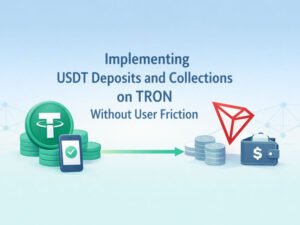Getting to finance is usually the first and most important step if you are a real estate investor or landlord and want to expand your rental portfolio. One of the most convenient ways of getting funds is through acquiring a business loan for rental property.
Such financial arrangements can cover anything from buying a new property to renovating or consolidating debts, if they are customized to the special needs of a rental property owner.
Financing options
There are a few ways to obtain a business loan for a rental property; however, each comes with its own set of advantages and considerations. The more conventional options include:
1. Traditional Commercial Mortgages
Commercial real estate loans for purchasing or refinancing rental properties are offered by the commercial banks or credit unions. Typically, they require good credit history, an upfront payment of at least 20 to 30 percent, and proof of the income potential of the property. Interest may be fixed or variable, whereas terms typically run anywhere from five to twenty years.
2. SBA Loans
With Small Business Administration loans, particularly the SBA 7(a) and SBA 504, financing rental properties is indeed eligible for favourable terms. These favourable terms include lower down payments and longer periods of repayment. However, in order to qualify for a small business loan for rental property through the SBA, the property usually has to be owner-occupied, therefore at least 51% of the property must be used for the borrower’s business operations.
3. Private Money Loans
Private lenders, such as individuals or groups of investors, may finance rental properties for much more flexible terms. Yet with private money lenders, it is generally known that interest rates might be much higher than traditional lenders. Conversely, loans from private money lenders are easier to procure and fast in processing. An excellent choice for private money lenders is for investors requiring short-term funding or those who otherwise cannot meet the stringent criteria of traditional lenders.
4. Loan Against Rental Discounted Income (LRD)
LRD loans stand out as unique options for the established landlord with a long-term lease agreement. Lenders lend against the discounted value of future rental income. So, if you have fairly steady tenants and want to monetize future cash flows to carry out new purchases or improvements, then this kind of business loan for rental property is just right for you.
Eligibility Criteria for a Business Loan for Rental Property
Taking a business loan for rental property will depend on several aspects that lenders consider while evaluating the degree of risk and their assessment of the ability to repay. Some common eligibility criteria could include:
- Credit Score:Most lenders look at a minimum credit score of 650, but the higher it is, the better the chances the loan is approved and the better the terms offered.
- Business Financials:Lenders consider your profit and loss statements, cash flow records, and balance sheets.
- Rental Income:Rental income proof from current or past properties helps to show the capacity to repay.
- Experience:Some lenders like applicants with a rental property management background.
- Property Valuation:An appraisal of the rental property will generally be conducted to find the loan amount.
List of Required Documents
When applying for a business loan for rental property, you must be prepared with different documents that are required to back up the application.
- Personal and business tax returns (usually for the last two years)
- Bank statements both personal and business
- Business license or registration
- Property lease agreements
- Rent roll (if the property has more than one tenant)
- Real estate appraisal report
Having the listed documents ready and organized will speed up the approval process of your loan.
Alternative Financing Possibilities
If regular or SBA loans are not possible options, other opportunities exist. Common candidates for these are:
- Hard Money Loans:Short-term money that gets secured against the property itself. Faster to get but with high costs attached.
- Home Equity Loans or HELOCs:If you have a property with ample equity, tap into it to fund your rental investment.
- Partnerships or Joint Ventures:Find someone else willing to invest and share the expenses.
When a standard business loan for rental property becomes unavailable because of credit issues or documentation, alternative routes like these are helpful.
Conclusion
A business loan for a rental house is, undoubtedly, a wise financial decision that helps investors and landlords in adding to their portfolios, improving cash flow, and achieving maximum returns. Whether it is obtaining finance through traditional commercial mortgages, SBA loans, private money lending, or LRD loans, it has become easier than ever to get a business loan for rental property.
By understanding the various requirements and submitting the relevant documentation, one can streamline his application and increase chances of being approved. Whether choosing a small business loan for rental property or considering the alternatives, the important factor is being able to assess your financial standing and select the one solution that works best for your investment goals.
A business loan for rental property opens a door of opportunity. It allows earning money for purchasing new properties while ensuring long-term profitability and sustainability in a competitive real estate arena.










